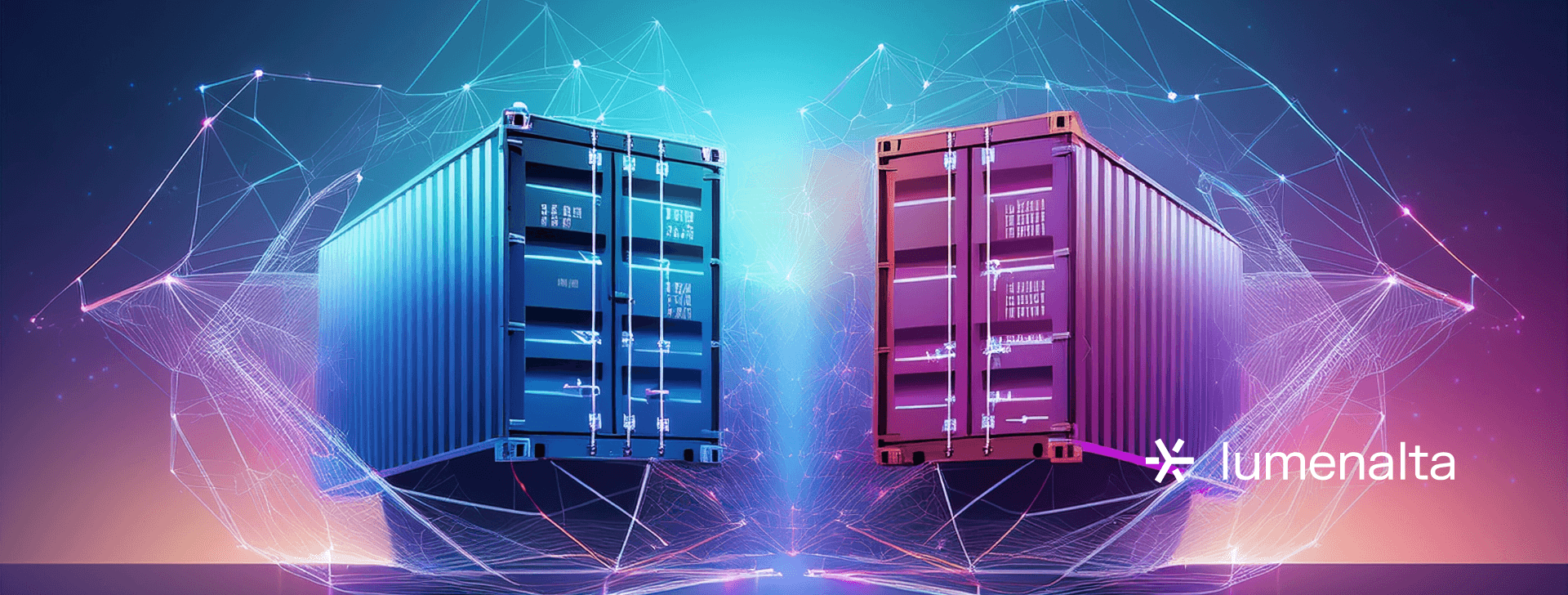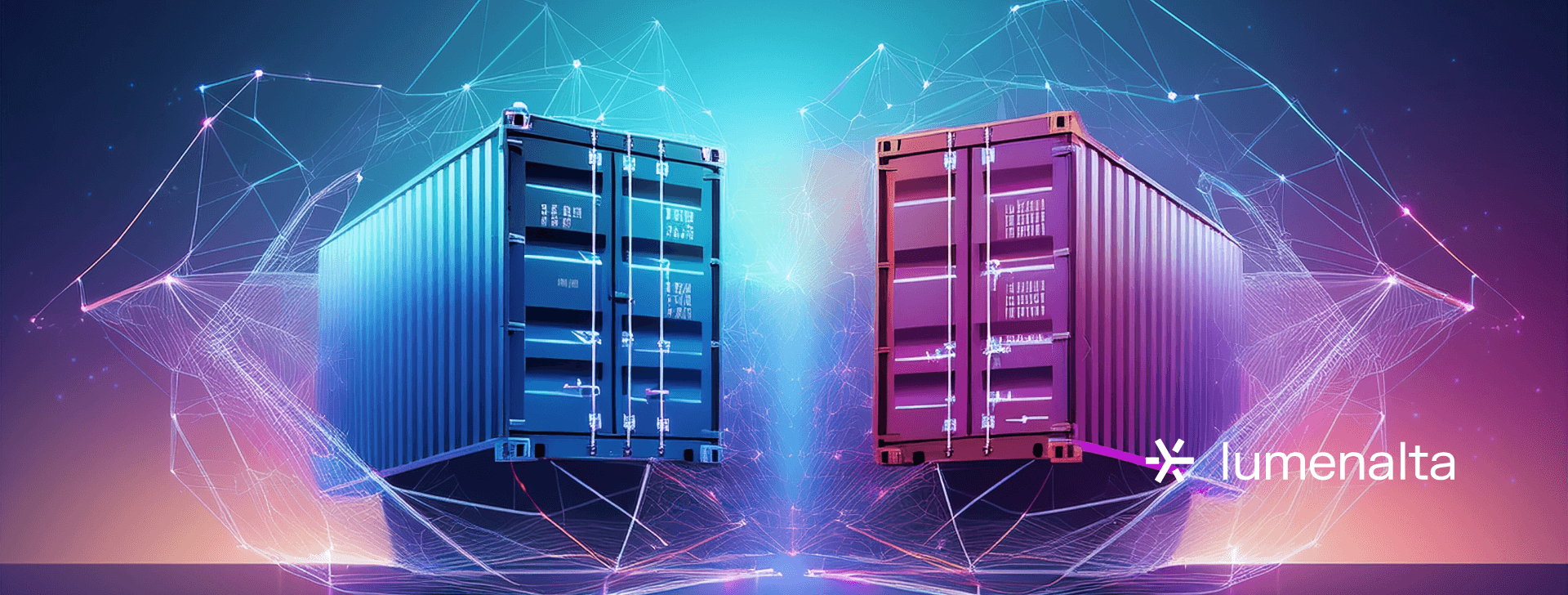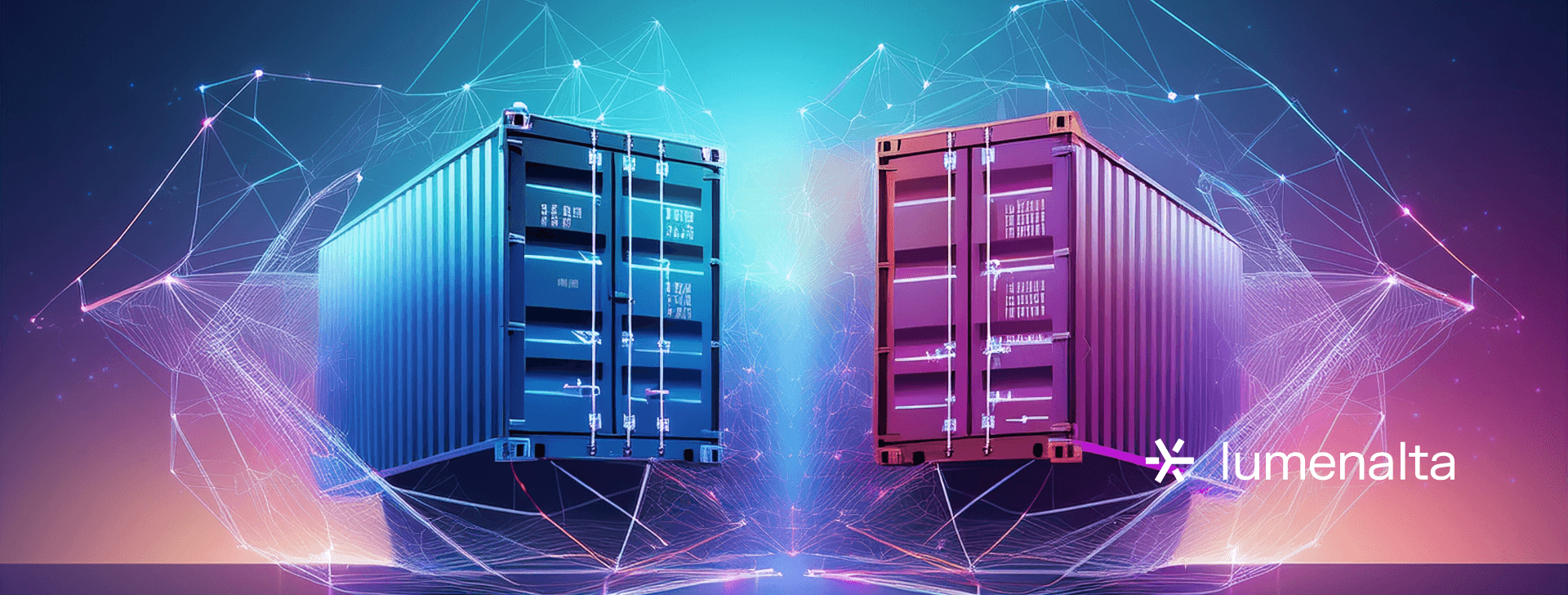

3PL vs freight forwarder
MAR. 11, 2025
7 Min Read
3PL vs freight forwarder can be a defining choice for businesses seeking scalable, efficient logistics solutions.
Many organizations weigh costs, speed, and the complexity of their operations before picking a partner. Each option has unique advantages, from customized warehousing strategies to highly specialized international shipping know-how. The objective is to identify the service that aligns with your global goals, local fulfillment requirements, and long-term expansion plans.
Key takeaways
- 1. Third-party logistics providers specialize in multi-faceted support such as warehousing, distribution, and technology tools.
- 2. Freight forwarders bring critical expertise in organizing cross-border transport, customs, and carrier coordination.
- 3. A side-by-side 3PL vs freight forwarder comparison helps highlight the different scope and levels of service each one offers.
- 4. Freight brokers concentrate on carrier matchmaking, while 3PLs tend to provide more comprehensive logistics solutions.
- 5. Optimized logistics strategies often combine a 3PL’s operational coverage with a freight forwarder’s global capabilities.
What is a 3PL?

Third-party logistics (3PL) providers are specialized partners that handle various supply chain activities for businesses looking to streamline operations. They typically oversee warehousing, inventory management, and distribution responsibilities, saving time and expenses for their clients. Many companies rely on these services to minimize resource overhead and tap into established expertise. This model is often viewed as an effective way to scale without building complex internal logistics networks.
Some providers go beyond basic distribution, offering packaging services or even tailored technology solutions that integrate with a business’s existing platforms. Others concentrate on building strong carrier networks to reduce shipping times and costs. The focus remains on helping each business optimize workflows so that internal teams can concentrate on product improvements, service delivery, and market expansion. Practical and measurable results often emerge from the expanded reach and flexibility that 3PL solutions provide.
“Reliable providers will use robust processes and systems to support product shipment, order fulfillment, and supply chain analytics.”
Benefits of using a 3PL
Effective use of third-party logistics services can unlock greater cost efficiency and faster paths to market. Many organizations choose 3PL arrangements to reduce overhead and simplify their logistics footprint. Reliable providers will use robust processes and systems to support product shipment, order fulfillment, and supply chain analytics. The following list highlights several benefits that can help you weigh the advantages of leveraging a partner for operational support.
- Reduced overhead: Working with a 3PL can cut fixed costs associated with warehouses and distribution centers.
- Specialized technology: Some 3PLs provide real-time dashboards, tracking portals, and digital tools that ease planning.
- Flexible capacity: Seasonal fluctuations become simpler to handle because the provider offers scalable storage and shipping resources.
- Potentially better carrier rates: High-volume relationships with freight carriers may translate to discounted pricing for clients.
- Dedicated expertise: Instead of hiring a full internal logistics team, businesses can count on specialized support.
- Streamlined returns: Many 3PLs manage reverse logistics, simplifying product returns and reducing complexities.
A collaborative relationship with a 3PL typically leads to sustained operational improvements. Teams can monitor key metrics like delivery times, order accuracy, and overall transportation spend. This approach allows for ongoing adjustments, especially as new products, services, or market opportunities emerge. It often adds predictability to scaling efforts and helps secure stable business growth.
What is a freight forwarder?

A freight forwarder arranges shipments across different transportation modes, such as ocean, air, and truck, matching shippers with suitable carriers around the globe. This partner specializes in orchestrating logistics processes, including negotiating freight rates, booking cargo space, and sometimes handling necessary customs paperwork. Businesses that ship products internationally often use a freight forwarder to streamline operations, especially when dealing with multiple carriers and crossing various borders. The partner’s global relationships typically result in smoother transitions between carriers and minimized shipping delays.
Some freight forwarders operate as larger enterprises with a wide presence, while others focus on niche markets or specific regions. Their primary value lies in shaping optimal routing strategies and ensuring compliance with different regulations across national boundaries. Many businesses prefer a single source to handle all these requirements because it lessens the chance of mistakes and allows them to concentrate on broader strategic priorities. The right freight forwarder can simplify complexities and help reduce unexpected expenses tied to international shipping.
Benefits of using a freight forwarder
Selecting a freight forwarder can bring predictability to international shipping and reduce the time it takes to coordinate multiple carriers. This approach helps foster greater peace of mind, especially when shipments must move across several countries or involve complex regulations. The following list outlines why many businesses opt for a specialized logistics partner for global transport.
- Consolidation of shipments: Freight forwarders often combine multiple smaller shipments into larger loads for reduced rates.
- Expertise with customs: They typically manage forms, duties, and taxes to help mitigate compliance issues.
- Strong carrier network: Their industry connections can lead to reliable transit routes and timely deliveries.
- Data and tracking: Many freight forwarders use digital tools that provide real-time shipment visibility.
- Lower administrative burden: Freight forwarders handle booking, documentation, and scheduling, so internal teams have fewer tasks.
- Cost predictability: Transparent quotes often simplify budgeting for international shipping cycles.
Firms that enlist a freight forwarder frequently enjoy consistent results in shipping times and fewer last-minute surprises. This often bolsters trust with customers who rely on goods to arrive on schedule. Relationships with global carriers also help businesses handle higher or lower demand volumes with minimal operational disruption. Additional efficiencies come from centralized expertise that aligns with global trade practices.
3PL vs freight forwarder

The main difference between a 3PL vs freight forwarder is the range of services each one delivers. A 3PL is designed to manage broader aspects of the logistics process, including storage, fulfillment, and distribution. A freight forwarder’s core strength lies in its transport planning and route optimization skills, particularly for cross-border or intermodal shipments. Both models can strengthen logistics performance, but their roles, scope, and level of involvement can vary significantly.
| Aspect | 3PL | Freight forwarder |
|---|---|---|
| Definition | Manages storage, order fulfillment, and distribution within a complete service offering | Focuses on booking cargo space, route planning, and managing carrier relationships for shipments |
| Scope | Broad scope, encompassing supply chain services from warehousing to delivery | Narrower scope, typically handling transport coordination from origin to destination |
| Relationship | Often, a deeper partnership with regular collaboration to improve logistics performance | Transaction-based or service-focused, primarily concerned with moving goods efficiently |
| Service complexity | Offers multiple services like inventory management, pick-and-pack, and returns management | Specializes in customs handling, shipping schedules, and route optimization for international freight |
Many organizations view 3PL partners as an extension of their internal logistics teams because these providers can align with corporate strategies and business targets. Freight forwarders shine when dealing with complex shipping requirements, especially across borders and multiple transportation modes. Depending on their operational scope and long-term goals, some companies may need both. Each arrangement calls for evaluating the scale of shipments, handling requirements, and any specialized compliance considerations before making a final choice.
When to choose a 3PL vs freight forwarder

Balancing service coverage, cost considerations, and urgency often determines whether a 3PL or a freight forwarder is best. Businesses that want deep involvement in day-to-day logistics operations and the flexibility to increase or reduce warehouse capacity may find a 3PL more helpful. Meanwhile, those focused primarily on moving goods internationally might lean on a freight forwarder’s expertise in customs clearance, route optimization, and consolidated shipping. The following sections explore specific situations.
High-volume fulfillment needs
Companies that manage large inventories or multiple distribution channels tend to benefit from a 3PL arrangement. Warehouse support, carrier selection, and order fulfillment tasks are typically combined in a single service that scales well. Growth often becomes easier to handle because inventory can be split across multiple distribution centers for shorter delivery times. This structure usually cuts overhead and keeps internal staff focused on business expansion rather than running warehouses.
Specialized international shipping
Firms that mainly handle international shipments and must juggle complex regulations often choose a freight forwarder. Some freight forwarders also supply customs brokerage and help gather documents necessary for cross-border transport. This arrangement simplifies shipping coordination across multiple carriers, each with different regulations and delivery times. Every international route gains consistency in scheduling, which can reduce delays caused by incomplete paperwork.
Hybrid needs
Businesses with both domestic and international logistics requirements may adopt hybrid strategies that combine 3PL resources with a freight forwarder. This method blends deep local support from a 3PL with global transport expertise from a freight forwarder. A dual approach can be beneficial for businesses with unpredictable shipping patterns or multiple product categories. Coordination between the two ensures goods are stored, handled, and shipped efficiently, which can improve customer satisfaction in different markets.
“Firms that enlist a freight forwarder frequently enjoy consistent results in shipping times and fewer last-minute surprises.”
Freight broker vs 3PL
The main difference between a freight broker vs 3PL is the broker’s role as a matchmaker between shippers and carriers, whereas a 3PL typically provides end-to-end logistics services. A freight broker connects clients with the most suitable carrier options, negotiates rates, and oversees the transport contract. The broker does not usually manage physical assets or hold inventory. A 3PL, however, can own or lease warehouses, invest in distribution networks, and handle several facets of supply chain management.
Some freight brokers operate in niche areas, focusing on specific routes or freight types. They can secure competitive rates for those particular shipping lanes due to well-developed carrier relationships. A 3PL may still collaborate with brokers to extend capacity during peak seasons or in regions where the 3PL lacks direct connections. Understanding these differences helps businesses select the partner that best aligns with their long-term operational model.
Implementing optimized logistics operations
Efficient supply chain strategies often blend the strengths of a 3PL, a freight forwarder, or both. Advanced analytics and real-time data gathering can support better forecasting of shipping volumes, enabling cost-effective decisions on which service to enlist. Many organizations assign clear roles and responsibilities to each partner for transparency in areas such as shipping costs, timelines, and overall service levels. Stakeholder alignment is pivotal for maintaining consistent results, especially when multiple providers contribute to the logistics function.
Teams that want measurable improvements often monitor key metrics to verify on-time deliveries, inventory accuracy, and shipping costs per unit. Frequent status reviews can drive timely adjustments to routes, carrier selections, or service-level agreements. Regular engagement also helps businesses adapt to emerging market conditions or shifts in consumer behavior. The ultimate goal is to reduce logistics overhead while preserving quality and speed of delivery, creating a future-focused supply chain strategy that supports business growth.
3PL solutions offer a practical path to improved fulfillment and reduced shipping overhead. Freight forwarders deliver precise expertise in global routing and customs management. At Lumenalta, the focus is on tailoring end-to-end logistics strategies for real-time optimization. Let’s shape a brighter path that ensures each shipment arrives on schedule and with measurable impact.
Common questions about 3PL vs freight forwarder
Do 3PL providers also handle customs clearance?
Does a freight broker store and pack inventory?
What is the difference between 3PL and freight forwarding vs 3PL for domestic shipping?
Does a 3PL handle small parcel shipments?
Why is visibility so important in the 3PL vs freight forwarder decision?
Want to learn how to reduce delivery delays and fuel costs through AI-based routing to your operations?








